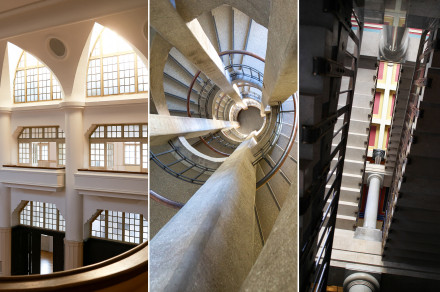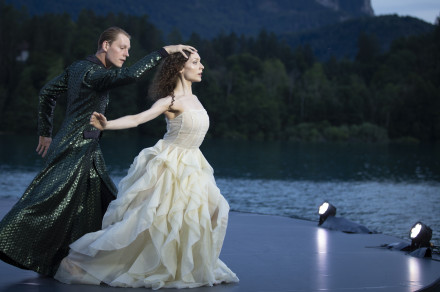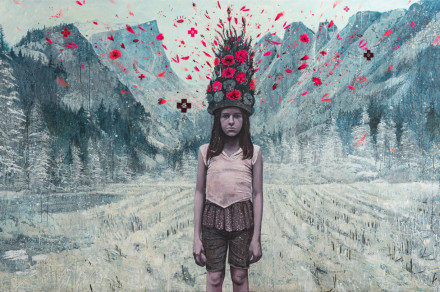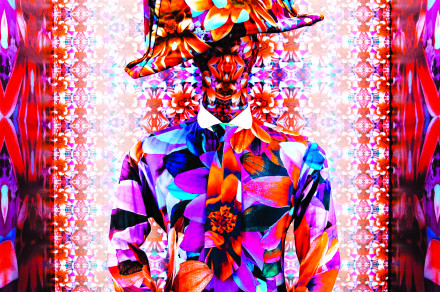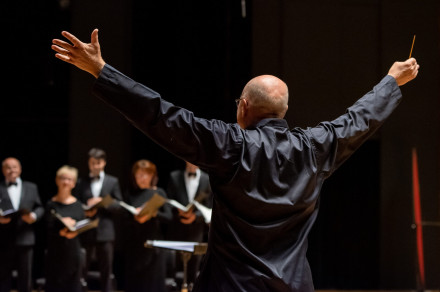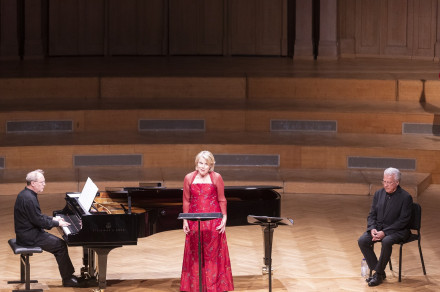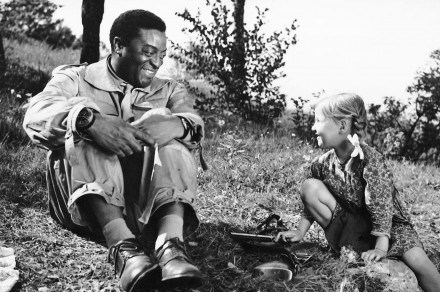Activities of the Ministry of Culture as part of the Slovenian Presidency of the European Union
Achievements in the field of culture
Conclusions approved at the meeting of ministers responsible for culture, audiovisual and media are one of the biggest achievements of the Slovenian Presidency of the Council of the EU. The meeting took place as part of the Education, Youth, Culture and Sport Council on 30 November 2021 in Brussels.
The conclusions on high-quality architecture and the New European Bauhaus initiative, and on European audiovisual and media content were outlined during numerous discussions. The priorities of the Slovenian Presidency of the Council of the European Union were discussed at meetings of working bodies in the fields of culture and audiovisual and media (Committee on Culture, Audiovisual and Media Working party) and at international expert conferences (on the right to cultural heritage as an incentive for sustainable development, and on the accessibility and competitiveness of European audiovisual and media content on the European and international digital market). Council conclusions are not legislative acts, but rather an incentive for the member states and the European Commission to continue monitoring already adopted measures or mechanisms, and the adoption of new measures.
Conclusions on high-quality architecture and the New European Bauhaus initiative
Approving the conclusions on high-quality architecture and the New European Bauhaus initiative was an important step towards implementation of the European Green Deal. The conclusions complement the European Commission's initiative to pursue the goals of the Green Deal through culture, cultural heritage, creativity, research and technical innovations. Recommendations and incentives from the approved conclusions should encourage member states to implement the proposed qualitative criteria and the principles of a circular economy in spatial planning and to improve access to information and financial instruments supporting future projects connected to the living environment.
Conclusions on European Audiovisual and Media Content
The cultural and creative sectors were severely impacted by the COVID-19 pandemic. Due to the rapid growth of VOD platforms, the EU member states have been faced with the challenge of how to increase competitiveness, accessibility and equal treatment of European audiovisual content. The ministers adopted conclusions with the aim of encouraging the member states and the European Commission to adopt measures in their jurisdiction to provide the European audiovisual and media sector with a competitive advantage on the European and international market and enable sustainable development, with an emphasis on cultural diversity.
The Slovenian Presidency's commitment to a better tomorrow – for a green, sustainable, culturally diverse and resilient European Union – was reaffirmed with the approval of the conclusions. In light of this commitment, the ministers held a policy debate on the strategic importance of cultural heritage and heritage rights for the sustainable development and future of Europe, while also discussing the impact of the Taliban regime on the Afghan cultural sector and calling for the humane treatment of the most at-risk groups of Afghan artists.
Minister of Culture Vasko Simoniti said that the November meeting concluded a period of prolific and important work done by the Trio Presidency of Slovenia, Portugal and Germany. The minister expressed his gratitude to Monika Grütters and Graça Fonseca, the German and Portuguese ministers, while wishing Roselyne Bachelot, the French minister, a successful Presidency of the Council of the European Union. France will take over the Presidency of the Council of the European Union on 1 January 2022.
Art and culture events
Art and culture events organised in Ljubljana and Brussels are also a worthy achievement. The events helped shape the cultural and promotional programme of the Slovenian Presidency. We showcased part of the wealth of Slovenian creativity to foreign and national audiences, thereby spreading European values and encouraging a search for solutions to current societal challenges.
The start of the Slovenian Presidency was marked by a ballet masterpiece on Bled Island in the form of the premiere of the Waterman ballet, staged by the Slovenian National Theatre Maribor, with choreography by Edward Clug, and it was concluded with a Retrospective of Slovenian Film in Brussels. Ten feature-length classics from the Slovenian film treasury – from the silent beginnings to present day productions – were shown on the big screen of the Royal Belgian Film Archive. A retrospective exhibition of works from the rich oeuvre by Slovenian costume designer Alan Hranitelj, who has been working in opera, theatre and film for over 30 years, works of the rich architectural heritage of three Slovenian architects – Fabiani, Plečnik and Vurnik – along with works of contemporary Slovenian fine art, was on display in Brussels and online. The curator of the exhibition, Marko Košan, prepared a selection of works by thirteen Slovenian artists who, in the midst of the present-day flood of visual images from mass media, are looking for new forms of painting, sculptural and photographic expression aimed at exploring new utopias of our (uncertain) future. The Europa Cantat 2021 international choral festival in Ljubljana hosted some big foreign musical groups and showcased the rich Slovenian choral creativity. In an evening of songs, mezzo-soprano Bernarda Fink and bass-baritone Marcos Fink paid homage to the outstanding achievements of European, including Slovenian, and Argentine musical and songwriting creativity in Brussels.
The Slovenian Presidency of the Council of the European Union offered a great opportunity to showcase France Prešeren's poem Zdravljica (A Toast), the seventh stanza of which is Slovenia's national anthem, for other European nations. The poem had a European dimension when it was written in 1844 and still has one today. Thanks to its powerful message, it was awarded the prestigious European Heritage Label by the European Commission on 31 March 2020. The highest-level protocol gift was a facsimile of Zdravljica (A Toast), which was presented to the heads of state and government and heads of EU institutions, underlining the Slovenian Presidency's commitment to respecting the values of European integration. The National and University Library was in charge of preparing this gift.
Slovenia participated in the selection of the European Union Prize for Literature (EUPL). The prize recognises new and up-and-coming authors from the countries that participate in the Creative Europe programme. Slovenian writer Anja Mugerli was among this year’s thirteen prize-winners for her short story collection, Bee Family. Minister of Culture Vasko Simoniti gave an address for the guests at the award ceremony in Brussels.
News
-
Virtual exhibition on Slovenian architects rounded off with exhibition and book project at National Museum of Slovenia
-
Culture for a better tomorrow
-
Minister Simoniti at the meeting of the Education, Youth, Culture and Sport Council
-
Ten classics from the Slovenian film treasury to be shown in Brussels in December
-
Photo Gallery: International conference "Increasing the accessibility and competitiveness of European audiovisual and media content"
Priorities in the field of culture
Culture
- Creativity, cultural rights and cultural heritage for sustainable solutions and a development breakthrough
- Innovative potential of culture a priority with special emphasis on high-quality living in the environment
- High-quality architecture and the built environment: new European living in the environment initiative
A wide field of creativity, cultural rights and heritage represents central starting point for designing sustainable solutions and the EU's development breakthrough. This describes culture as an important actor in building a green and digital future of the EU. Slovenia made the issue of the innovative potential of culture a priority with special emphasis on high-quality living in an environment where architectural solutions are based on tradition and supported by modern technology, in line with the initiative of the New European Bauhaus, drafted by the European Commission.
Audiovisual policy and the media
- Availability and competitiveness of European audiovisual and media content
- Cultural diversity as an added value and digital development as a responsibility
The big advantage of the European audiovisual and media sector is in its originality and diversified creativity. The cultural diversity of the European Union plays a big part as a foundation of the EU mechanisms supporting the audiovisual sector (Creative Europe 2021–2027 programme, amended Audiovisual Media Services Directive, increasing the share of independent European audiovisual works and encouraging investments in audiovisual production).
This priority is integral to strengthening the audiovisual sector as a market and widening access to the global market for European creatives and professionals. This should increase opportunities for sustainable development and boost competitiveness, while also widening access of citizens to high-quality, culturally and linguistically diverse content. Culture, language and creative freedom are among the foundations of the European identity or identities. The development of the digital market, which is based on data management, significantly contributes to ensuring democracy in society.
International conferences
The Right to Heritage as a Catalyst for Sustainable Development
From 10 to 11 September 2021, a two-day international conference was held online to shed light on the issues mentioned in the title of the conference from different perspectives, including by presenting some concrete examples that illustrate the right to heritage, its role in modern society and the importance of heritage for sustainable development. Defining the subject matter is a process involving serious analysis and open dialogue. This was the aim of the opening speeches and presentations, the two panels devoted to the two main topics of the conference, the three workshops, and especially the discussions at the end of each session and at the conclusion of the conference.
The most important messages of the conference
"We perceive the right to heritage comprehensively, as it is an indispensable part of the right of every person to participate in cultural life. It is contained in the right to knowledge, expression, creativity and the enjoyment of values reflected in heritage diversity and the quality of our living environment."
"The heritage so perceived is an equally important resource for the future of humanity as natural resources and biodiversity. Heritage is a source of knowledge about nature and how humans can treat it with care. We must step up the training of all stakeholders and strengthen the participatory tools to be able to plan and monitor sustainable development by taking into account our heritage and enriching it."
"Heritage as a part of a good-quality living environment is an inspiration for creating more understandable and attractive future architectural, urbanistic and design solutions, which, if they pass the test of time, will be our future heritage."
"Above all, heritage is part of our humanist tradition. Therefore, our main message is the following: culture and cultural heritage should become the humanist agenda of Europe united by European values."
Increasing the availability and competitiveness of European Audiovisual and Media Content
From 12 to 13 October 2021, an international expert conference "Increasing the accessibility and competitiveness of European audiovisual and media content" took place in Cankarjev dom congress center in Ljubljana as well as online. International expert conference has been held on how to facilitate an equal relationship between players in the global market of audiovisual content providers. The proliferation of large streamed content platforms (VOD platforms) poses a major challenge to EU member states as to how to increase the competitiveness, accessibility and equal treatment of European audiovisual content.
The conference discussions included the advantages and disadvantages of new technologies to promote and increase the visibility of European works, improving their accessibility and developing translation software, as well as the use of digital tools to make audiovisual works and media content more accessible, thus increasing the level of social inclusion. One of the important findings of the conference is that international co-productions can play an important role in strengthening the competitiveness of European audiovisual content.
Although the conference did not reach a solution that would make the European audiovisual and media sector more sustainable and increase its negotiating position in establishing competitive relations on the global market, important reflections were made on the subject. As Dr Vasko Simoniti, the Slovenian Minister of Culture and President of the EU Council for Culture, said in his introductory address, the conference was an excellent opportunity for confronting the opinions of representatives of various interest groups — decision makers, producers and creators.
Photos
Speech by Minister of Culture of the Republic of Slovenia Vasko Simoniti
Accompanying programme
European Heritage Summit
The European Heritage Summit was organised by Europa Nostra in cooperation with the European Commission in Venice from 21 to 24 September 2021. Discussions on a sustainable, resilient and inclusive society with emphasis on the potential of culture and cultural heritage for the recovery of society after the COVID-19 pandemic took centre stage. The discussed topics coincide with two recognisable initiatives: The New European Bauhaus and the Conference on the Future of Europe.
Minister of Culture Vasko Simoniti attended the European Heritage Awards 2021 and the European Heritage Policy Agora "From the New European Bauhaus to the New European Renaissance". On the margins of the summit, the minister met bilaterally with the Italian Minister of Culture, Dario Franceschini.
Green and digital archives in the EU for everyone
The Archives of the Republic of Slovenia organised two online events devoted to current issues of European archives at the Gospodarsko Razstavišče studio in Ljubljana on 4 November 2021. At the invitation of and led by European Commission representatives (only EU member states were invited), the 29th meeting of the European Archives Group (EAG) was organised in the morning, while the 42nd meeting of the directors of the European Board of National Archivists (EBNA) took place in the afternoon.
Encouraging inclusiveness – cooperative approaches to digital cultural heritage
The international conference Encouraging inclusiveness – cooperative approaches to digital cultural heritage, which was co-organised by Europeana and the Ministry of Culture, took place online from 2 to 3 December 2021. The contributions of the participating experts highlighted and supported in various ways the common message of the conference: the focus of cultural institutions, including in the field of digitisation of cultural production, must be on users, who communicate their needs in diverse processes of inclusive co-creation of cultural goods.


